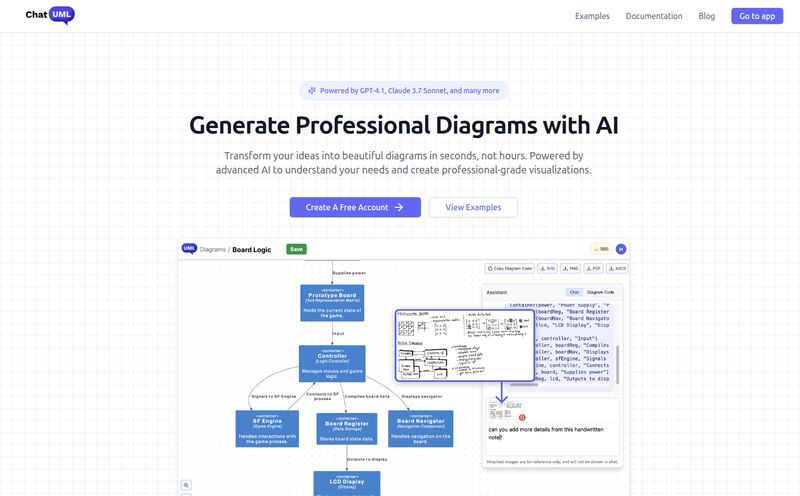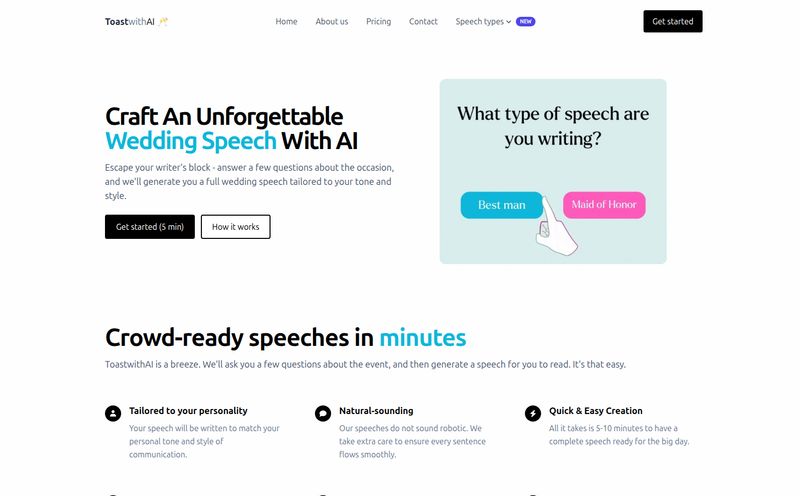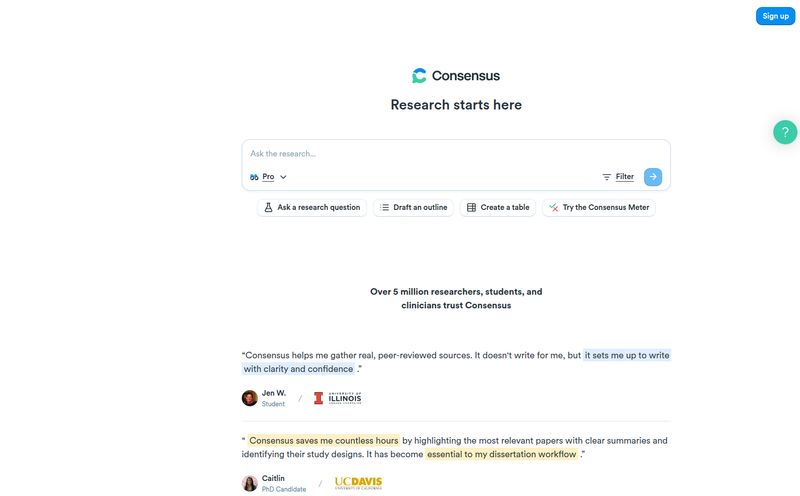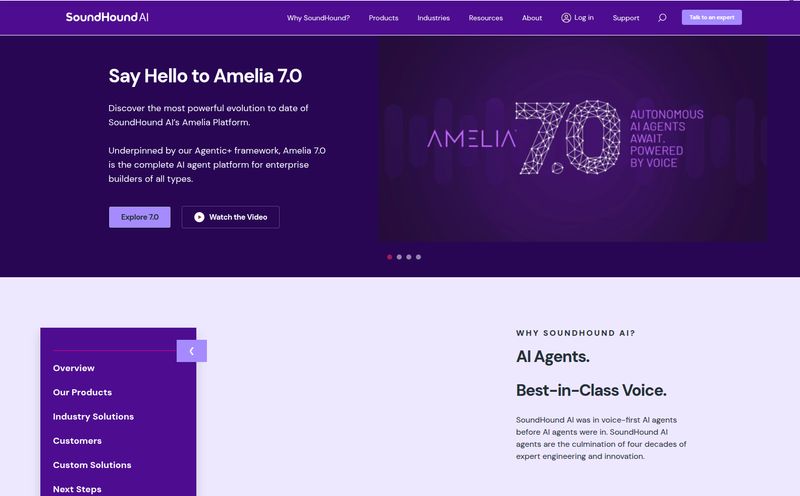It feels like every other Tuesday there’s a new Large Language Model (LLM) dropping that claims to be the next “GPT-killer.” Seriously. One week it’s all about Claude 3, the next, Llama 3 is stealing the show, and then some obscure model from a research lab you’ve never heard of pops up and writes poetry better than Keats. As someone who’s been riding the waves of digital trends for years, from the early days of keyword stuffing to the current AI-powered content boom, I can tell you this pace is… a lot.
My biggest headache? Trying to figure out which of these models is actually any good. It’s one thing to read a press release, but it’s another to put an LLM through its paces. How do you consistently test them? How do you compare apples to apples when one model is a Fuji and the other is some kind of weird, genetically modified Granny Smith?
I used to have a chaotic folder on my desktop named “PROMPT_STUFF_FINAL_v2_real.” It was a mess of text files with prompts I’d cobbled together. Prompts for generating meta descriptions, for brainstorming article ideas, for debugging Python code. It wasn’t a system; it was a cry for help. And that’s where a tool like PromptsLabs caught my eye. It’s not flashy, but it’s trying to solve a very real, very nerdy problem.
So What on Earth is PromptsLabs?
Let's get one thing straight. PromptsLabs isn't another AI writing tool. It won't generate content for you. Think of it more like a community cookbook for AI. It doesn’t cook the meal, but it gives you thousands of recipes to try out in your own kitchen (or, in this case, on your LLM of choice). It’s a massive, open-source library of prompts specifically designed for one thing: testing Large Language Models.
The whole idea is built on a simple loop: discover, test, and contribute. You can browse a huge collection of prompts submitted by other users, copy them with a single click to test on whatever AI you're currently experimenting with, and if you create a killer prompt yourself, you can submit it back to the library for others to use. It’s a collaborative effort to figure out what makes these complex models tick.

Visit PromptsLabs
Why a Central Prompt Library Actually Matters
“Okay,” you might be thinking, “I can write my own prompts. Why do I need a library?” And you’re not wrong! But think about it from a traffic and data analysis perspective. If you want to genuinely compare the logical reasoning of GPT-4o against Mistral Large, you can't just ask them both to “write a story.” You need to give them the exact same, carefully constructed prompt that pushes their boundaries. PromptsLabs aims to be the source for those benchmark prompts.
For me, an SEO, this is huge. I want to know which model is best at generating Local SEO schema, or which one can take a list of keywords and create genuinely useful content clusters. Having a set of pre-built, community-vetted prompts for these tasks saves me an incredible amount of time. I dont have to reinvent the wheel every time a new model is released. It's about creating a baseline, a standard that helps us all make more informed decisions instead of just going with whatever model has the most hype on Twitter that week.
The Core Features Up Close
The platform itself is beautifully simple. Almost deceptively so. Here’s the breakdown of what you're working with:
- A Comprehensive Prompt Library: This is the heart of PromptsLabs. It's a searchable, filterable database of prompts covering different scenarios. You might find prompts for testing mathematical ability, creative writing, code generation, factual recall, and even prompts designed to try and “break” the AI or reveal its biases.
- The Community-Driven Engine: This is its biggest strength and, as we'll see, a potential weakness. The fact that anyone can contribute means the library is constantly growing with fresh, relevant prompts from people on the front lines. It’s the wisdom of the crowd in action.
- One-Click Copy & Paste: There's no complex API to wrangle or software to install. You find a prompt you like, you click a button, and it's on your clipboard, ready to be pasted into ChatGPT, Claude, Perplexity, or whatever you’re using. This low barrier to entry is fantastic.
- Submit Your Genius: Crafted a prompt that perfectly tests an AI’s ability to understand nuance? You can easily submit it to the platform, contributing to the collective knowledge base. It’s a very Web 2.0, open-source ethos that I really appreciate.
The Good, The Bad, and The Community-Sourced Reality
No tool is perfect, and community-driven platforms have their own special kind of quirks. After spending some time with PromptsLabs, here's my honest take. The big advantage is having this centralized repository. It's like moving from a scattered collection of sticky notes to a fully organized library. The collaborative aspect is also a massive plus, fostering a shared space for knowledge that helps everyone get better at prompt engineering.
However, you have to go in with your eyes open. A major point to consider is that a prompt’s effectiveness can vary wildly between different LLMs. A prompt that gets a brilliant, detailed response from a GPT model might get a confused, one-sentence answer from an open-source alternative. This isn't a flaw of PromptsLabs itself but a fundamental truth about the current AI space. You're testing both the prompt and the model.
Then there's the quality control issue. Because it relies on community contributions, the quality can be a bit of a grab-bag. Some prompts are meticulously engineered masterpieces. Others feel like they were typed out in 30 seconds. You have to use your own judgment to sift the gold from the gravel. This leads to the final caveat: you still need a basic understanding of prompt engineering. This isn't a tool for someone who has never written a prompt before. It’s for people who know what they’re looking for but want to save time and get new ideas.
Who Is PromptsLabs Built For, Really?
I see a few key groups getting a ton of value out of this platform:
- AI Developers and Researchers: This is the prime audience. They need to rigorously benchmark and red-team their models. A library of adversarial and capability-testing prompts is invaluable for them.
- SEO Professionals and Digital Marketers: That’s me! We’re constantly evaluating AI for practical business tasks. Is the new model better for generating ad copy? How about for summarizing technical articles into easy-to-read blog posts? This is our testing ground.
- The Passionate Hobbyists: There's a growing community of AI enthusiasts who just love to see what these models can do. For them, PromptsLabs is a veritable playground of ideas to push the limits of the latest and greatest AI toys.
And The Price for All This?
So, what's the damage to your wallet for access to this community-built treasure chest? This is the best part. From everything I can see, PromptsLabs is free. There's no pricing page, no subscription model, no credit card required. It seems to be a genuine community project, which in today's world of endless SaaS subscriptions, is incredibly refreshing. It lowers the barrier completely, making it accessible to students, independent researchers, and curious minds everywhere.
Frequently Asked Questions About PromptsLabs
Is PromptsLabs a substitute for learning prompt engineering?
Absolutely not. It's a tool to enhance your skills, not replace them. You'll get much more out of it if you already understand the basics of how to structure a good prompt. Think of it as a library for a musician—it gives you sheet music, but you still need to know how to play the instrument.
Can I use prompts from the library for commercial work?
Generally, yes. The platform operates on an open-sharing model. However, it's always good practice to be mindful of community-generated content. The real value for commercial work is in testing which model performs best with a certain type of prompt, so you can then build your own proprietary prompts for that model.
How is the quality of prompts maintained?
Quality is maintained by the community itself. It's a bit like Wikipedia or a Stack Overflow thread. The most useful and well-crafted prompts will likely get more attention, but there's no central editor vetting every single submission. It's on the user to evaluate the effectiveness of a given prompt.
What LLMs can I test with these prompts?
Any of them! That's the beauty of the copy-paste functionality. You can test prompts on OpenAI's models (GPT-4, GPT-4o), Anthropic's Claude, Google's Gemini, and any open-source models you might be running locally, like Llama or Mistral.
Do I need to create an account?
From what I've seen, you can browse and copy prompts without an account. However, if you want to contribute back to the community by submitting your own prompts, you will likely need to sign up. This is pretty standard for community platforms.
My Final Take on This AI Prompt Library
So, is PromptsLabs a game-changer? In a quiet, understated way, I think it is. It's not a flashy, venture-backed platform promising to revolutionize the world. Instead, it’s a practical, useful tool built by the community, for the community. It’s the digital equivalent of a shared workbench where everyone leaves their best tools for others to use.
It won't do the work for you, and it has the same inconsistencies you'd expect from any crowdsourced project. But for anyone serious about understanding the true capabilities and limitations of the dozens of AI models flooding the market, it’s an indispensable starting point. It turns the chaotic task of testing into a more structured, collaborative process. And in the fast-moving world of AI, that’s a very welcome thing indeed.
Reference and Sources
- PromptsLabs Official Website
- IBM: What are Large Language Models (LLMs)?
- A Gentle Introduction to Prompt Engineering



